Subscribe now for simple tips that make you smarter, faster, and ahead of the game.


Abdullah
DID YOU KNOW
75%of Australians search online to find local tradies for their home or business needs.
Well that’s the thought of many tradies these days.
With more people relying on Google to find services like plumbers, electricians, and builders, having a strong SEO guide and strategy is no longer optional, it’s essential.
If you’re a tradie looking to
mastering SEO is the key to making it happen.
SEO, or search engine optimisation, is all about helping your website appear higher in search engine results so more people can find you online. Think of it as making your business more visible to customers who are already searching for the services you offer.
But SEO isn’t just about getting on Google, it’s about staying ahead of the competition and turning those clicks into real leads.
That’s why I’ve put together this simple, easy-to-follow guide written for Aussie tradies.
You can use the handy table of contents below to skip to the sections that interest you most

SEO can feel like a different language, especially with all the industry terms thrown around. To make it simple, here are some key SEO terms you’ll need to know:
Links from one website to another. Think of them as a vote of confidence from other sites for your content.
The words and phrases people type into search engines, like “plumber in Sydney” or “best electricians near me.”
Long-tail keywords are specific, longer phrases that people search for online. They usually have less competition and target a niche audience, making it easier to rank and attract the right visitors. For example, instead of “shoes,” a long-tail keyword could be “best running shoes for women.
A specific type of SEO that helps your business rank in local searches, like “electricians near Brisbane.” Perfect for tradies!
A score that predicts how well your website will rank in search engines. Building quality backlinks and providing great content can boost your DA.
The text that appears in search results. A catchy Meta title and clear Meta description can boost your click-through rate.

The pages Google shows after someone searches for something. These are where your business needs to appear to attract customers.
Anything on a search results page that isn’t a standard link, like:
Quick answers Google pulls from a top-ranking page to display at the top of the SERP, ideal for catching a potential customer’s eye.
Search results with extra info, like star ratings, prices, or reviews, making them stand out on the page.
Descriptions for images on your website that help search engines understand what the image is about. Great for improving accessibility and SEO.
The percentage of visitors who leave your website after viewing only one page. A lower bounce rate means visitors are engaging with your content.
The process of reaching out to bloggers, website owners, or journalists to promote your content or services.
Alright, now that you’re clued up on the basics, let’s get into the real deal that is what exactly is SEO?
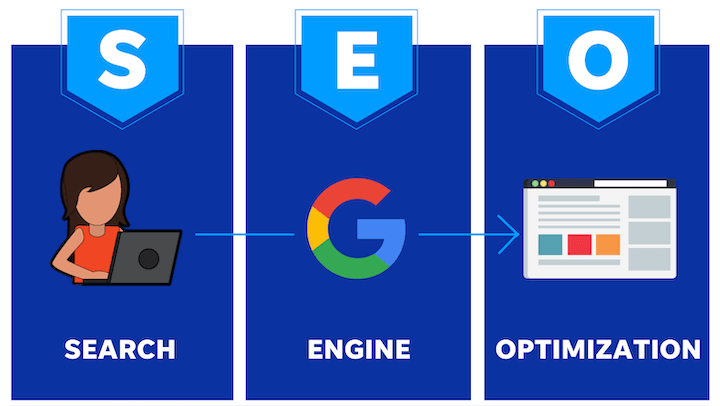
SEO stands for Search Engine Optimisation, but don’t let the fancy name fool you.
It’s just a way to make your website more visible on Google (or other search engines, if anyone still uses those)
e.g
A homeowner searches for “best electricians near me,” and bam, your business shows up right at the top.
That’s the magic of SEO.
It’s all about getting your site to rank higher so more people see it, click on it, and give you a call.
Think of it like this: your website is your online shopfront. SEO is the big, flashy sign that gets people to walk in. The better your SEO, the more likely you are to get noticed.
So, if you’re keen to boost your leads and make your business the talk of the town, SEO is where it’s at.
SEO has been around longer than you might think, yep, even before Google became the king of search engines.
The term Search Engine Optimisation popped up in 1997, and funnily enough, we might have a rock band manager to thank for it. Apparently, Jefferson Starship’s manager wasn’t happy when their website showed up on Page 4 instead of Page 1. His frustration sparked the push to get websites ranking higher.
Back then, search engines were a mix of directories like Yahoo Directory and DMOZ (think of them as the Yellow Pages for websites). Ranking high wasn’t about algorithms but about being manually approved.
Fast forward to today, SEO has transformed into a full-on strategy. It’s no longer just about showing up, it’s about ruling the search engine results pages (SERPs). What started as a need to bring traffic to cool websites has now become a way of life for businesses.
Back in the day, stuffing your website with keywords like “plumber Sydney plumber Sydney plumber Sydney” was enough to rank high. But Google got smarter (thankfully) and now prioritises quality over quantity.
With more people searching on their phones, SEO shifted to focus on mobile-friendly websites. Plus, local SEO became huge, helping tradies get found in their area when someone searches “electrician near me.”
Google loves valuable, well-written content. If your website answers people’s questions or solves their problems, it’s more likely to rank higher. Blogs, guides, and videos are now SEO gold.
It’s not just about keywords anymore. A fast, secure, and easy-to-navigate website plays a big role in your SEO ranking. If people love your site, Google will too.
SEO keeps evolving to match how people search and interact online. To stay ahead, you’ve got to keep learning and adapting, just like you would with any tool or technique in your trade!
Let’s look at what you can do to keep up.
So, here’s the deal
If we break it down into a simple “SEO salad,” the three main ingredients that we focus on to rank a website would typically be:
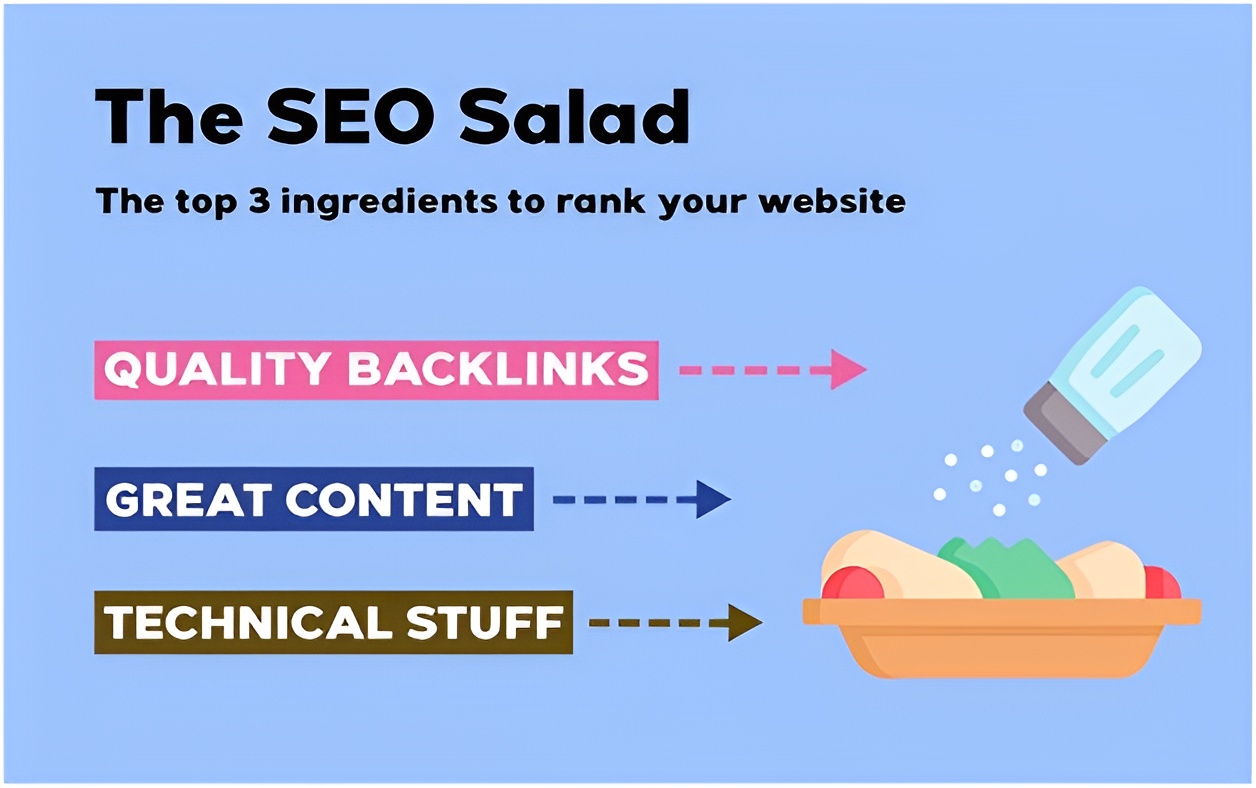
Each of these elements works together to create a well-rounded SEO strategy. Like any good salad, balance is key, too much of one and not enough of the other can make the recipe fall flat.
Search engines like Google have a pretty smart way of deciding which pages should show up when someone types in a search. They don’t just pull up any old webpage, they have got a system for crawling (discovering) and indexing (storing) content from all over the web. After they have done that, they check out a bunch of things to see if your page is the right fit for the search.
Here are some key things they look at:
When search engines see your content is what people are actually looking for, they’ll rank it higher, meaning you show up in those sweet organic search results. More visibility means more free traffic to your website, bringing in potential customers without needing to spend on ads.
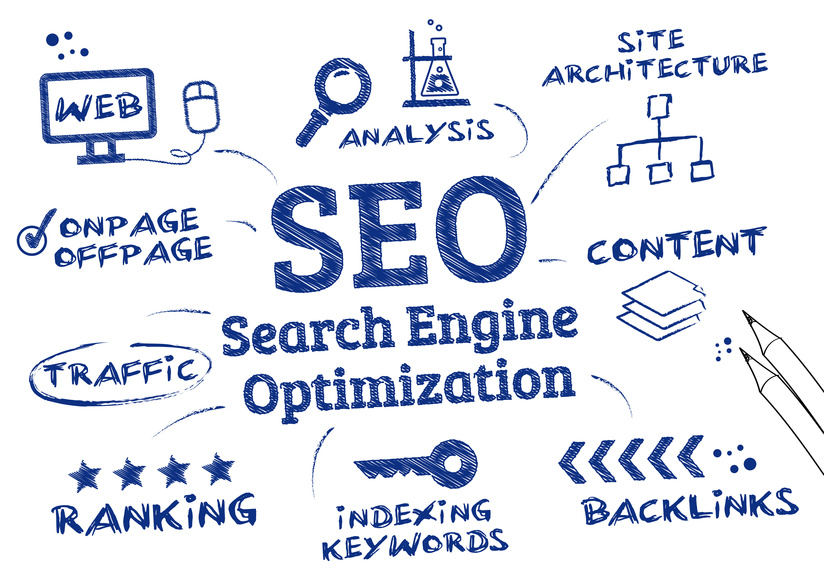
SEO isn’t one-size-fits-all, it has different branches, each focused on a specific part of the process.
Here’s a quick breakdown of the main types and specialisations in SEO:
This is all about optimising the content and structure of your website. It includes:
This is the work you do off your website to improve its ranking. The key here is building authority through:
This type focuses on the behind-the-scenes stuff that helps search engines crawl and index your website. Some key areas are:
This is crucial for tradies, as it helps your business show up in local searches. Key parts include:
If you’re a tradie selling products online, SEO can help your shop stand out and boost sales. Here’s how to optimise your online store for success:
With voice assistants like Google Assistant and Siri on the rise, voice search is becoming more important. Optimising for voice search involves:
SEO might have a lot of parts, but by understanding the different specialisations, you can target the right areas to get your tradie business ranking higher. Ready to dive in?

Ready to boost your online presence?
Here’s a simple guide to creating an SEO strategy that will help your website climb those search rankings in 2025.
Before you get into any SEO work, take a good look at your current site. A website audit helps you understand what’s working, what’s not, and where improvements are needed.
What do you want to achieve with SEO? Whether it’s increasing website traffic, generating more leads, or boosting sales, having clear goals will help shape your strategy.
Make your goals SMART:
Keyword research is usually the first step in a good SEO strategy.
One of the easiest ways to find keywords your customers might search for is using Google Suggest.
Here’s how it works:Start typing a keyword into Google’s search bar, and Google will show a list of suggestions. These suggestions are great because they come directly from Google, which means real people are searching for them.

Also, long-tail keywords (longer phrases) are often less competitive than short-tail keywords (shorter, more general terms).
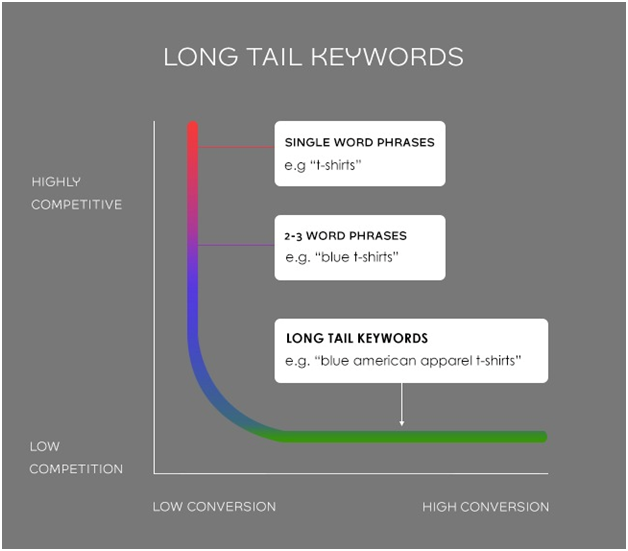
Also you can use tools like Google Keyword Planner, Ahrefs, or SEMrush to find high-volume keywords related to your business.
Choosing the right keywords is crucial to boosting your SEO game. Here are a few tips to help you find the perfect ones:
Use these simple strategies to make sure you’re targeting the right keywords and driving traffic to your website.
Now it’s time to optimise your website. This includes tweaking your page titles, meta descriptions, headings, and content to make sure they match your target keywords.
Key steps:
Google loves fresh, relevant content that answers users’ questions. Regularly updating your blog or product pages with valuable information is key to ranking higher.
Some content ideas:
Make sure your content is original, well-written, and engaging, this is what will help you stand out.
Backlinks (links from other websites to yours) are a crucial part of SEO. They tell search engines that other reputable sites trust your content. The more quality backlinks you have, the higher you can rank.
How to build backlinks:
If you’re a local business, local SEO is a must. It helps you show up in searches for your area, like “electricians near me” or “plumbers in [city name].”
Steps for local SEO:
SEO is always evolving, especially with Google’s algorithm updates. Keep learning and adjusting your strategy to stay ahead of the game.
Here’s how to stay current:
By following these steps, you’ll be on your way to creating a solid SEO strategy that can bring more traffic, higher rankings, and ultimately more business in 2025.
When it comes to SEO, there are different strategies you can use. Most marketers fall into two categories: black hat SEO and white hat SEO. Here’s a quick rundown:
This is the shortcut approach using spammy tricks to try and manipulate Google into ranking your site higher. While it might work temporarily, it’s a risky game. Google will catch on and penalise your site, which could even lead to it being blacklisted.
Some common black hat tactics include:
This is the ethical, long-term strategy that follows Google’s guidelines and delivers real results. White hat SEO is all about creating a great user experience, optimising your content, and earning legitimate backlinks. It’s the approach I recommend, as it’s all about playing the long game and building trust with both Google and your audience.
Then, we’ve got grey hat SEO, not as shady as black hat, but still a bit of a grey area. You’re not trying to outright trick anyone, but you might push the limits to get an advantage. Google’s standards aren’t always clear or consistent, which is why grey hat tactics can sometimes fly under the radar.
For example, guest blogging can be seen as grey hat if it’s used to build links. While Google frowns upon spammy link-building, guest blogging to genuinely build brand awareness and attract quality traffic is totally fine. The key is making sure you’re offering valuable content and not just pumping out irrelevant links.
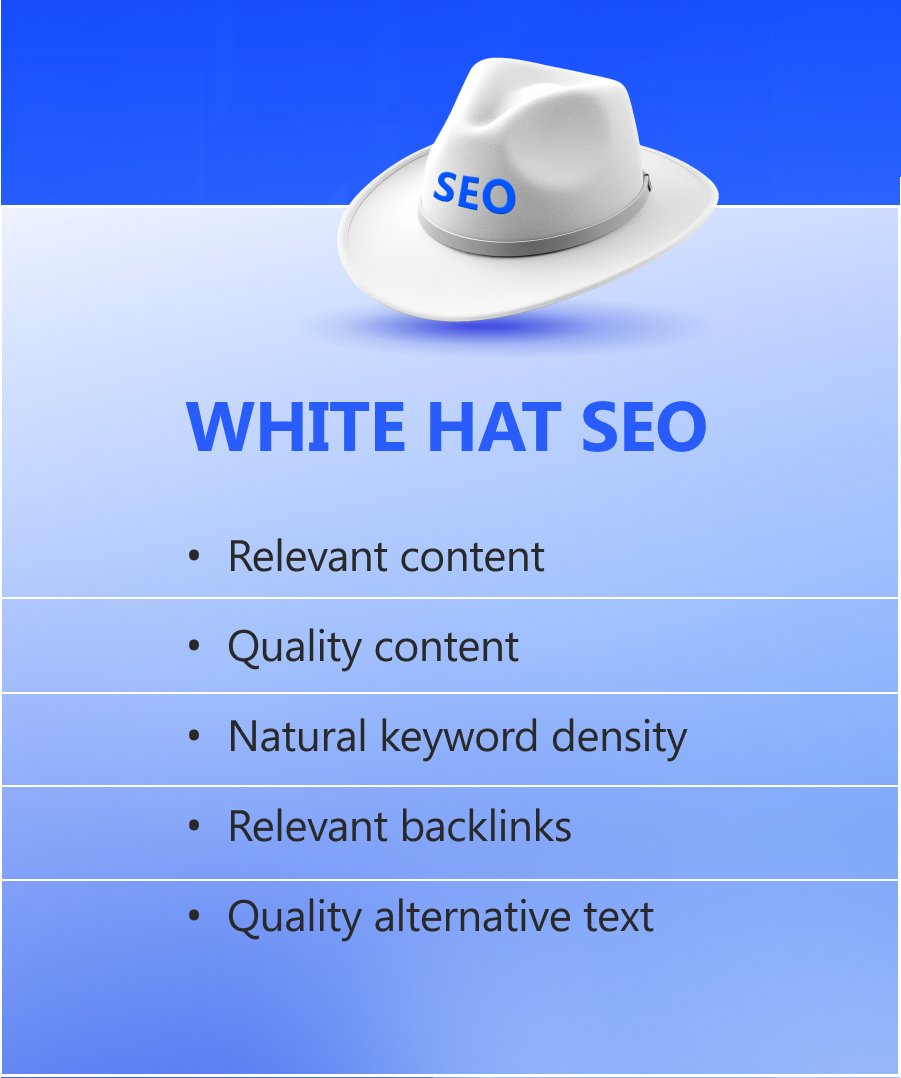
Ultimately, white hat SEO is the best route to take if you want sustainable results without risking penalties. Google rewards websites that provide great content, a good user experience, and relevant, high-quality backlinks. Stick with the good stuff, and your rankings will follow!

If you want to do well with SEO, it’s important to use SEO tools. These tools give you useful information and help you understand your website’s performance. They can save you time and give you a big advantage over competitors.
Here are some SEO tools every website owner should use:

Gone are the days of flipping through Yellow Pages to find local businesses. These days, Google is where everyone heads when they need something nearby. So, if you’re running a local business and want to show up in those search results, SEO is a must.
Here’s how you can get more eyes on your business and bring in more customers with local SEO strategies.
If you’re an electrician like our client CM Elect aiming to attract clients in Brisbane, or a myotherapistlike one of our best client Myofitness looking to bring in patients from North Melbourne, local SEO is the key to helping you stand out and get noticed by the right people.
Here are a few examples of how SEO can work wonders for different businesses:
No matter what industry you’re in, if you’re a local business, local SEO is the key to getting noticed. Start optimising your website for your specific area, and watch those customers start rolling in!

SEO isn’t an overnight fix. It’s more like a marathon than a sprint. Typically, you can start seeing some results within 3 to 6 months after implementing an SEO strategy, but this can vary depending on factors like your industry, competition, and how aggressive your SEO efforts are. For some businesses, it might take a bit longer, especially in highly competitive markets.
It’s important to remember that SEO is an ongoing process. While you’ll start to see improvements in rankings, traffic, and leads gradually, the real long-term benefits come from consistent optimisation.
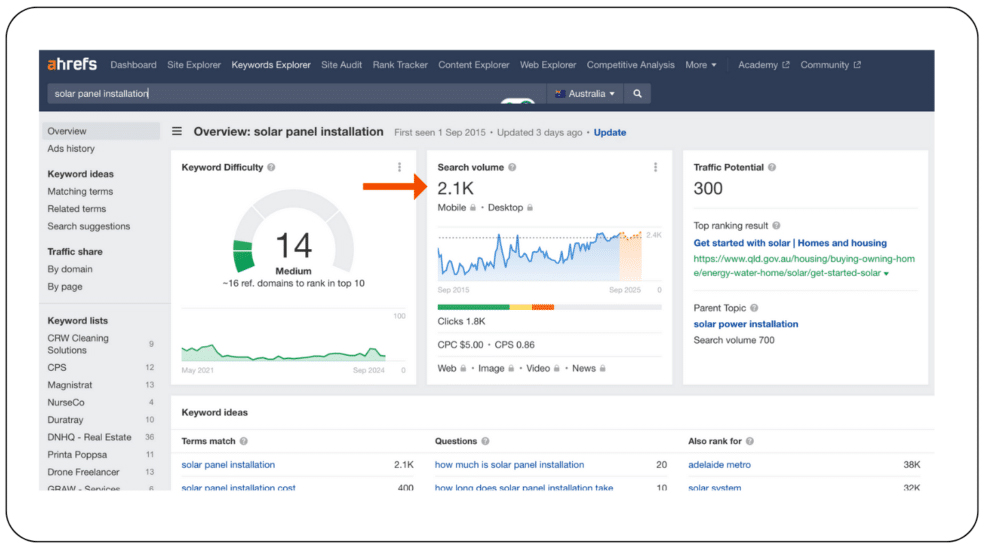
SEO is crucial because it helps your website get discovered by the right people—those actively searching for what you offer. Without it, your business could be invisible online, even if you have the best product or service.
Here’s why SEO matters:
Simply put, SEO is essential for growing your business, reaching the right audience, and staying competitive in today’s digital world.
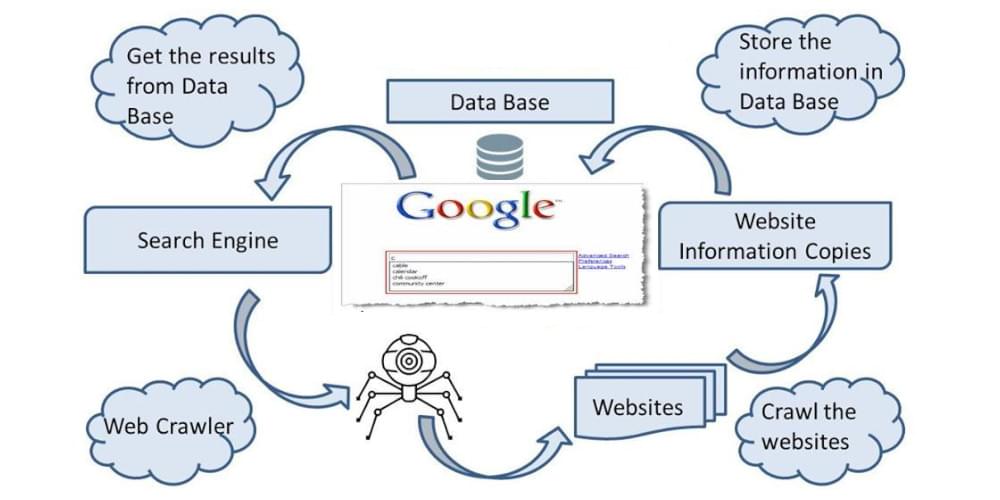
SEO is all about making your website more attractive to search engines like Google, so they can rank it higher in search results when people search for something relevant to your business. Here’s a simple breakdown of how it works:
When it comes to SEO, Google has a set of standards to ensure that search results are useful and trustworthy. These standards are wrapped up in the E-E-A-T guidelines, which stand for Experience, Expertise, Authoritativeness, and Trustworthiness. Here’s a quick rundown of each:
When you follow these guidelines, you’re not just pleasing Google, but also providing your audience with valuable, reliable content.
Google’s algorithm is constantly evolving, and these changes can shake up search rankings and traffic in big ways. Here are some major updates you should know about:
These algorithm updates show just how important it is to create high-quality, relevant content and build authentic backlinks. If you want to stay ahead in the SEO game, you need to keep up with these changes and adjust your strategy to maintain and boost your rankings.
Hiring an SEO company can take your tradie online game to the next level. These experts know exactly what works to get your site ranking higher and driving more traffic. They stay on top of all the latest trends, updates, and algorithm changes, so you don’t have to. With their expertise, they’ll create a custom strategy tailored to your business, saving you time and helping you stay ahead of the competition.
By working with an SEO company, you’re not just hoping for results, you’re investing in long-term growth. They focus on improving your website’s visibility, getting you more organic traffic, and ultimately boosting conversions.
Plus, they have access to premium tools that make tracking and optimising your performance a breeze. If you want to see real, sustainable growth without the stress, partnering with an SEO pro is a no-brainer.
As a tradie, you want to be seen by the people who need your services. Whether you’re an electrician, plumber, or landscaper, SEO helps you get noticed by potential customers who are searching for exactly what you offer. And yes, SEO works! It gives you one of the best returns on investment in marketing.
In fact, 49% of marketers say SEO brings the best ROI out of all marketing channels. So, with the right strategy, you’ll start seeing some solid results over time.
For tradies, SEO isn’t just a way to be found online, it’s a tool for growing your business and making sure the right customers find you when they need you most.

Picking the right SEO agency for your business isn’t just about finding someone who can promise results. It’s about finding a partner who truly understands your business, your goals, and how SEO fits into the bigger picture. Here’s what to look for when choosing the right fit:
Choose an SEO agency that partners with you, not just works for you, and watch your business thrive for the long term.
Our team, at HeyTradie, don’t just delivers SEO strategies but we design solutions that perfectly align with your business goals and speak directly to your audience. If you’re looking to rank higher on Google, attract more local customers, or turn website visitors into loyal clients, we’re here to help you every step of the way.
Ready to dominate the digital space and leave your competitors behind? Let’s transform your online presence and make your business the one everyone trusts and finds online. Your success is our mission – let’s get started today!
Next Post:

SEO Expert & Content Writer
Abdullah is an SEO Expert and Content Writer who loves helping businesses grow online. He creates interesting content and makes sure it shows up on search engines so more people can find it. In her spare time, He enjoys reading books and has a great love for animals.
Copyright © 2025 Heytradie.